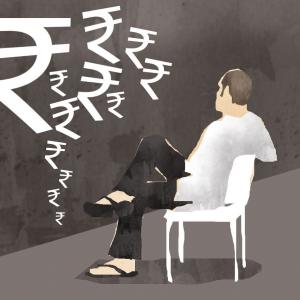These plans are best suited for individuals with a lower risk appetite as they provide guaranteed benefits.

The chairman of the Life Insurance Corporation, Siddhartha Mohanty, in an interview to Business Standard, said that the insurer is keen to enhance the premium contribution from non-participating (non-par) plans in its premium mix.
Buyers need to make an informed choice when opting for these insurance plans.
Guaranteed-return plans
Non-par plans do not participate in the insurer's profits or losses.
"The plan is a low-risk insurance-cum-investment tool that offers guaranteed benefits at pre-determined intervals. Unlike participating (par) plans, they do not offer bonuses or dividend payouts based on the life insurer's business performance," says Anup Seth, chief distribution officer, Edelweiss Tokio Life Insurance.
Investors can figure out the exact return they will earn from these plans if they survive till maturity.
"This is not possible in par plans where the bonus can vary from one year to the next," says Deepesh Raghaw, a Securities and Exchange Board of India-registered investment advisor.
The payout in these plans is either a lump sum and/or a regular income. In the income option, the investor can choose monthly, quarterly, half-yearly or annual payouts.
Earn tax-free return
On the higher side, these plans can offer returns in the range of 6.5 to 7 per cent plus (many plans offer lower returns as well).
While fixed deposits (FDs) can also offer similar returns, their returns are taxable.
"The returns from non-par plans are tax-free if the annual premium is up to Rs 5 lakh," says Vivek Jain, head of investments, PolicyBazaar.com.
FDs are subject to reinvestment risk.
"At the time of renewal, the return you get from an FD could be lower if interest rates within the economy have come down. In non-par plans, the investor can lock in today's rate for 30 to 45 years," says Jain.
Illiquid product
These plans lack liquidity.
"Exiting is difficult if you want to opt out of the plan after a few years. In an FD, you can take out your money whenever you want," says Raghaw.
Investors must make sure they can afford the premium for the entire premium-payment term.
These plans gain a surrender value after a minimum number of premiums have been paid.
If the plan is surrendered before this period, the investor gets nothing back.
And even after the policy has acquired a surrender value, it would be only a fraction of the invested amount (it increases with each year).
Check the IRR
Check the payouts and the timing of the payouts.
"Calculate the internal rate of return (IRR). Since it may not be possible for retail customers to do these calculations, they should seek expert help," says Raghaw.
Comparing IRRs is crucial to avoid plans with very low returns.
Returns are age-dependent. "The younger the age when the policyholder starts investing, the higher the return," says Vaibhav Kumar, head-products management, Max Life Insurance.
One reason for returns being lower for older people is that they have to pay a higher mortality charge.
"Make sure the IRR you are told is specific to your age," says Raghaw.
Kumar says investors should ensure the policy has life cover equivalent to 10 times or more of the annual premium. Only then will the return be tax-free on maturity.
Who should go for these plans?
According to Seth, these plans are best suited for individuals with a lower risk appetite as they provide guaranteed benefits.
Raghaw says they are suited for people who don't need liquidity, and who are not concerned about earning the highest return but are keen on a guaranteed lump sum or income.
"People who do not want to invest in annuities because the returns from them are taxable may also opt for these plans," he adds.
However, one point to remember is that annuities make payouts for life, while these plans have a fixed tenure.
Finally, avoid a lapse in timely premium payment as this can significantly impact the guaranteed return.
"Investors should carefully assess their financial capacity and commit to premiums that they can sustain over the long term," says Kumar.

Disclaimer: This article is meant for information purposes only. This article and information do not constitute a distribution, an endorsement, an investment advice, an offer to buy or sell or the solicitation of an offer to buy or sell any securities/schemes or any other financial products/investment products mentioned in this article to influence the opinion or behaviour of the investors/recipients.
Any use of the information/any investment and investment related decisions of the investors/recipients are at their sole discretion and risk. Any advice herein is made on a general basis and does not take into account the specific investment objectives of the specific person or group of persons. Opinions expressed herein are subject to change without notice.
Feature Presentation: Aslam Hunani/Rediff.com










